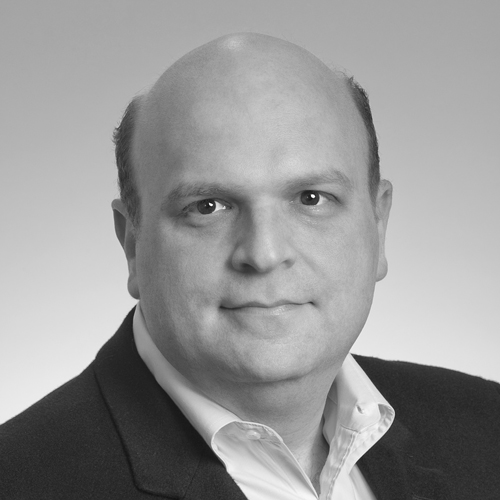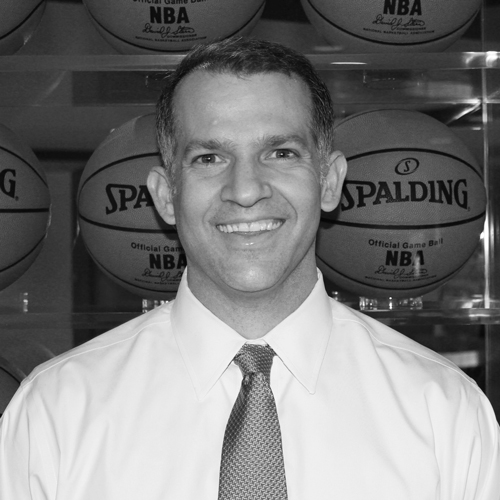Modern Counsel: General Electric is a huge name around the world, but what specifically attracted you to such a huge company?
Debra Burns: GE is one of the largest global companies out there, with a stellar reputation for integrity, innovation, and leadership training. It’s over 130 years old. It was founded by Thomas Edison, and it is the only company listed in the Dow Jones Industrial Index today that was also included in the original index in 1896. It doesn’t get better than that!
MC: Working for a large, international corporation has its perks. What’s the best part, for you, about working at GE?
DB: The opportunity to learn, grow, and be challenged, both personally and professionally, in this complex organization and through all of the many areas that it serves. I wanted to develop my experience in international litigation and arbitration, and GE is the best place to do that, as it does business in approximately 180 countries.
MC: What has surprised you about working in the health-care branch of GE?
DB: I think what surprised me the most is how few administrative assistants and paralegals there are at GE. It is very much a “can-do, self-reliant” organization.
MC: You are also a major part of international litigation. What are the most important lessons you’ve learned about the practice of law by working in this sector?
DB: There is so much to know about litigation across the globe, and I am constantly learning new things. Laws and culture vary from country to country, as do alternative dispute resolution practices, arbitration, and litigation. One has to be very careful when handling litigation and disputes in another country. You have to be certain that you understand the law, the culture, and privacy, privilege, and confidentiality obligations.
MC: Can you describe some of these differences?
DB: In some countries, the average time for a case to make it through the court system to resolution is 12 years. In other countries, litigation over small amounts (a few hundred dollars) is common and voluminous. In some countries, such as the US, the culture is very litigious, and cases are discovery-intensive and expensive to defend. In still other countries, the culture seeks to avoid litigation, and the result is little to no litigation, little to no discovery, and low defense costs—apologies settle disputes. It just takes time and experience to handle litigation globally, and it never gets boring.
MC: What about your personal ethos as an attorney? How does that translate to this kind of work?
DB: My personal philosophy in the handling of our litigation is to be fair and just. If we are at fault in a dispute or litigation, we want to resolve that matter quickly, reasonably, and fairly. It is the right thing to do. It is also best for the business and for our customers to settle things efficiently and economically because the longer the litigation, the higher the cost. However, if we are not at fault, we are not afraid to litigate.
MC: Internally, you’ve been working on creating a list of outside counsel that GE always works with on a regular basis. What are the requirements to make it on that list?
DB: We require our firms to staff our matters leanly and stick to strict budgets. We are also moving toward 60 percent use of alternative fee agreements. Additionally, we have a standard list of outside experts and other vendors [that we work with].
MC: In addition to streamlining work with outside counsel, you’ve also been standardizing processes within your department. What procedures have you implemented, what is their function, and how do they work?
DB: We have simplified our document retention notices (DRN) process. We have an electronic tool for notifying employees, providing reminders, and tracking and releasing the notices. We have one DRN form that can be used for almost all matters with only a few blanks to be completed before it is sent out to the pertinent employees for each matter. And we have centralized the DRN process to a small group of people who handle this full-time.
We also have a “discovery simplification” initiative involving any technical services or document review in furtherance of the collection, processing, review, analysis, hosting, and production of documents. We have brought much of the electronic discovery and document review work in-house, but we also have a standardized short list of approved e-discovery vendors, as well as copy services.
MC: With so many initiatives going on, what do you enjoy most about your work?
DB: There are so many things. First, I enjoy the people with whom I work. They are the best of the best. Bright, intellectually challenging, ethical, hard-working, collaborative, responsive, and dependable. Second, I value and respect both our internal and external customers. I feel very privileged to work in health care, and I am proud of what we do. We make a difference in people’s lives, including my own and my family’s by providing valuable services and products that assist health-care professionals in diagnosing and treating patients.
MC: Even with so many positives, there have to be some challenges, right?
DB: There aren’t enough hours in the day to tackle everything as thoroughly as one would like to, sometimes. You have to be comfortable making decisions or giving advice with limited information. And, as everyone knows, it is difficult to find that work-life balance.


